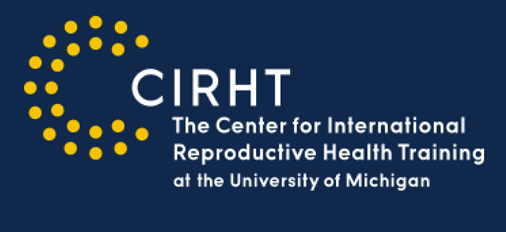Speaker
Description
Background: Family planning counselling at different contact points of Maternal Health services has been recommended for increasing the uptake of modern contraceptive methods. The government of Zambia initiated family planning as one of the initiatives of reducing maternal mortality rate. Unfortunately, the unmet need for family planning is also high due to various reasons, affecting family planning services. The best family planning counselling practices by midwives can improve the uptake and consequently reduce too many and frequent pregnancies that predispose women to post partum heamorrhage a leading cause of maternal deaths.. This study explored women’s satisfaction with contraceptive counselling offered by midwives providing family planning services in selected health facilities in Lusaka, Zambia.
Methods: This study employed a cross-sectional study design. Three health institutions; a Level one hospital, and two health centres of Lusaka urban clinics were sampled using the stratified random sampling and 430 participants were selected using a systematic random sampling. A pretested and adapted structured interview schedule was used to capture information from women seeking family planning services. The outcome variable was Women’s satisfaction about confidentiality, privacy, adequate length of counselling session, given enough information and history taken from the woman.
Results: A total number of 430 participants were recruited with an average age of 28 years, with 54.7% expressing satisfaction of family planning counselling. Logistic regression analysis showed that, attending counselling sessions at Kabwata Clinic and Mtendere Clinic, compared to Chawama Level 1 Hospital, was significantly associated with lower odds of being satisfied with family planning counselling. Respondents at Kabwata Clinic had 96% lower odds of being satisfied (aOR = 0.04, 95% CI = [0.02, 0.09], p < 0.001), while those at Mtendere Clinic had 97% lower odds (aOR = 0.03, 95% CI = [0.01, 0.07], p < 0.001). Having health insurance cover compared to having none was significantly associated with 0.50 times reduced odds of satisfaction in the adjusted model (aOR = 0.50, 95% CI = [0.27, 0.89], p = 0.022). Similarly, having plans for a future pregnancy significantly reduced the odds of being satisfied with counselling (aOR = 0.24, 95% CI = [0.13, 0.45], p < 0.001), and experiencing a previous unwanted pregnancy also significantly lowered the odds of satisfaction by 43% (aOR = 0.57, 95% CI = [0.34, 0.95], p = 0.031). Regarding contraceptive method preferences, wanting intrauterine devices (IUDs) was significantly associated with lower odds of satisfaction (aOR = 0.02, 95% CI = [0.00, 0.40], p = 0.010). However, preferences for implants, injections, oral contraceptives, or condoms did not show statistically significant associations with satisfaction in the multivariable analysis.
Conclusion: Almost 50% of the respondents expressed dissatisfaction with counselling despite demonstration that the majority of the women obtain the contraceptives from the health facilities. Women seeking long term methods like IUDs were dissatisfied, supporting studies that have shown low utilisation. To address the low satisfaction levels, training and standards be implemented to improve the quality of counselling in areas like privacy and confidentiality.
Key Notes: satisfaction, counselling, contraception


